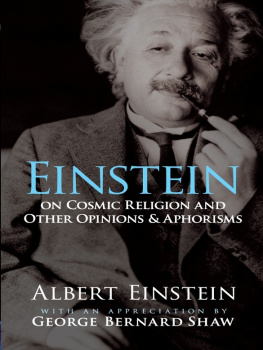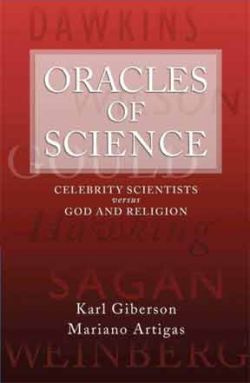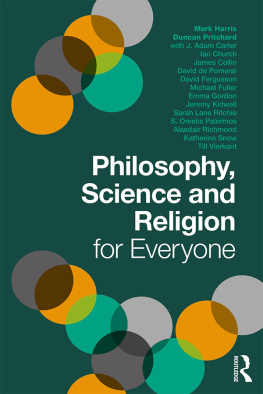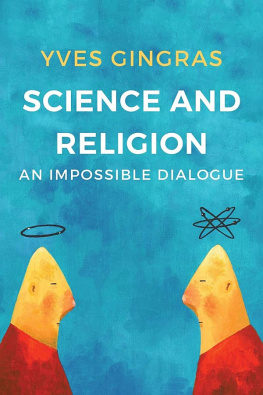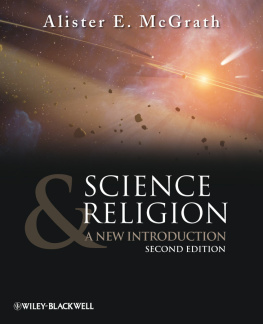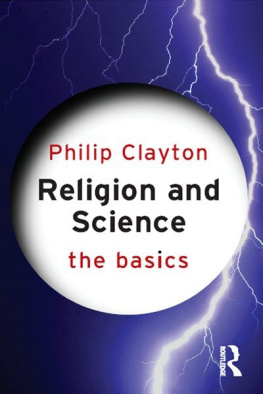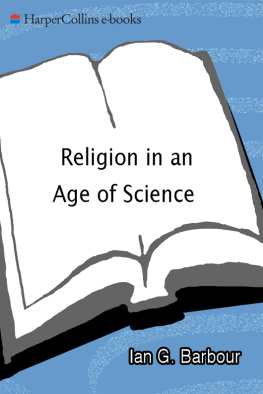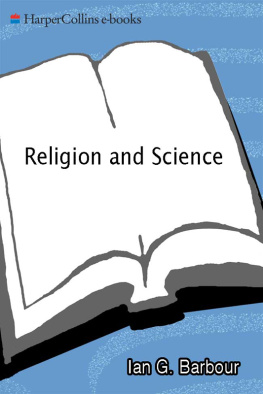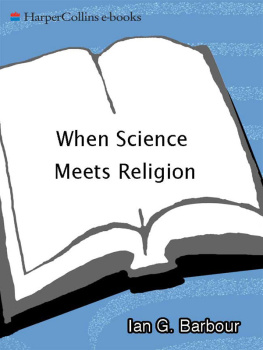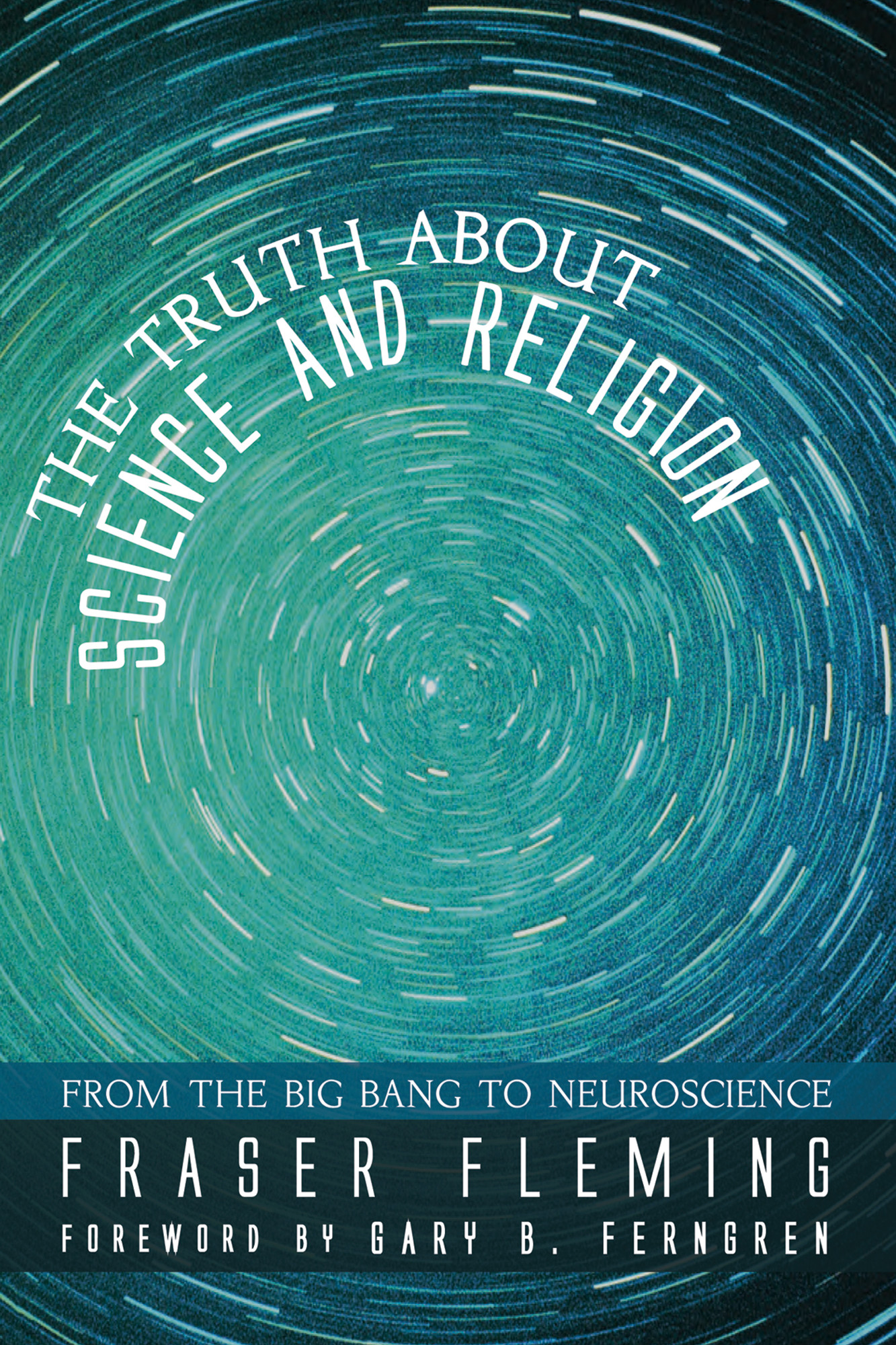Foreword
Science and religion are intertwined like DNA, begins Fraser Fleming in his Introduction to this book. While that statement seems counter-intuitive, it expresses a point of view that is both necessary and important for a correct understanding of the relationship of science and religion. For more than a century, science and religion have been thought to be in conflict, offering alternative and mutually exclusive accounts of the creation of the universe. Traditional religious narratives, like those in Genesis, have come to be considered primitive attempts of pre-scientific writers to account for the mysteries of the world around them by employing supernatural tales. Only with the rise of modern science, in this widely held view, did an accurate understanding of nature become possible. As science provided rational explanations for what had previously been thought to be Gods handiwork, nature lost its mystery and religious explanations retreated into the world of the irrational. In fact, that view is a myth, based on what historians of science term Whiggism. The Whig interpretation views the past through the lens of the present and sees history as moving progressively toward the ideas and institutions of our later, more enlightened, age. Whiggish historians have sometimes distorted the past to affirm the values of the present by dividing historical figures and movements into the friends and enemies of progress.
Even more influential has been the conflict thesis, which has been for the past century the predominant view of the relationship of science and religion. It has wedded a triumphalist picture of modern science, which it views as a factually-based liberating and progressive force, with a dismissal of religion, which it sees as faith-based and regressive. The conflict thesis continues to be widely accepted; indeed, it has become the dominant narrative among both scientists and layman. But, as recent scholarship has demonstrated, it too is a myth. Throughout the past two millennia the relationship of science and religion has exhibited a multiplicity of approaches, reflecting both local conditions and particular historical circumstances. The relationship between religion and the sciences is neither a monolithic nor a static one. Both have changed over the centuries and they reflect the diverse circumstances of time and place. The popular view that the march of science is one of inexorable progress and that the controversies between religion and science were disputes in which (to quote Alfred North Whitehead) religion was always wrong, and... science was always right is based on a mistaken view of the history of scientific progress, which was as uneven as theological progress.
Far from being in conflict, science and religion have often been allies and considered by their proponents to be complementary. Many leading scientists have been devout believers who studied nature (in the words of Johannes Kepler) to think Gods thoughts after him. Controversies between science and religion have tended to arise when long-accepted scientific theories were being challenged by new ones, as in the substitution of a heliocentric solar system for a geocentric universe in astronomy or in the adoption of evolutionary biology in place of a static view of biological development. Defenders of traditional scientific views have sometimes appealed to biblical texts for support against novel theories. Indeed biblical interpretation remains the crux of many disputes today between some (but by no means all) religious believers and those in the scientific community whose views they challenge. At most times in the history of Western civilization such disputes were minimal and the scientific enterprise enjoyed relatively harmonious relations with Christian thought.
In this volume Fraser Fleming casts his net broadly, while focusing on the creation of the universe and the descent of the human race. He begins by exploring the Big Bang and its implications for everything that follows. In tracing those implications philosophical and theological questions arise. What is time? When did it begin? Is the universe eternal or created? The result of chance or design? Is the universe teleological, finely tuned with the human race seemingly in mind? Chapter 2 discusses the origins of life on Earth and its religious implications. How does one harmonize the creation narrative of Genesis with what we know of prebiotic evolution? Is evolution divinely guided or the result of chance? The discussion in chapter 3 focuses on the beginning of living organisms and the multitude of theological questions that raises that are not easily answered. Whence came death, suffering, and the extinction of species, for instance? In chapter 4 we come to the development of humanity and to another set of difficult questions. How did humans cultivate religious sensibilities? How did they develop a moral and a spiritual sense? How did moral evil first enter human society? How should we interpret the Genesis narrative of the fall of the human race and its influence for human history?
In the first four chapters Professor Fleming addresses scientific issues. In so doing he follows the traditional pattern of Christian theologians who have spoken of Gods Two Books, nature and the Bible. The first book is that of general revelation . In Christian theology revelation is Gods disclosing himself and his will to his creatures. In general revelation God reveals himself through nature. An appreciation of the natural world as Gods creation has always been a central theme in Christian theology. But he also raises the questions that trouble many religious believers. Has science left any place for God in the modern evolutionary view of creation, especially in dealing with the origins of the human race? While providing an impressive and up-to-date summary of current scientific views, he demonstrates that natural science does not explain everything. For all its achievements, science does not provide ultimate answers to questions regarding the meaning of the universe or of life itself. And so he proceeds in chapter 5 to describe special revelation, the term that theologians use to speak of how God reveals himself in prayer, miracles, prophecy, and Scripture, which fill the gaps in general revelation.
Chapter 6 deals with the history of science and its interaction with religion from the Babylonians to the mid-twentieth century. Flemings account is brief but provides the reader with the perspective that (as historians like to think) is necessary to understanding how we got to where we are today. In particular it demonstrates that the pioneers of modern science were not narrowly scientific in their approach, but were often men of faith who were deeply concerned with the religious implications of their scientific discoveries. And few fields of modern science have made more progress and require a religious perspective more than the neurosciences. Hence, in chapter 7 he examines the mind, the soul, and the spiritual and mystical experiences that are at the core of religious views of the world. In chapter 8, Fleming brings the various strands that he has so far dealt with together in a discussion of the way in which he believes science and religion provide a comprehensive understanding of the world around us, a world that contains both material and spiritual components. Finally, in an Epilogue (chapter 9), he provides a personal point of view. He writes both as a practicing research scientist in Chemistry and as a Christian believer who is widely read in the literature that addresses the intersection of sciences with theology. He draws on both his own experience in science and his reflections in his journey of faith.


